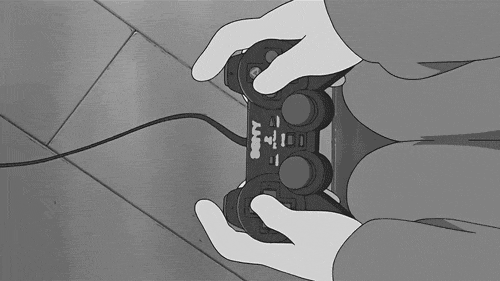We use cookies on our website for a number of purposes, including analytics, performance, and advertising. Learn more.
OK!
Boo
SIGN IN
Coachman Personality Type
Coachman is an ESTP and Enneagram Type 7w8.
Last Updated: May 1, 2025
Debate the personality types of your favorite fictional characters and celebrities.
SIGN UP
50,000,000+
DOWNLOADS
Debate the personality types of your favorite fictional characters and celebrities.
50,000,000+
DOWNLOADS
SIGN UP
"Sure, I can help you with that! Just follow my lead and everything will be just fine!"
Coachman
Coachman Character Analysis
In the 2002 film "Pinocchio," directed by Steve Barron, the character of the Coachman plays a pivotal role in the story's darker themes and serves as a representation of temptation and deceit. The film is a live-action adaptation of the classic tale originally told by Carlo Collodi, where a wooden puppet dreams of becoming a real boy. The Coachman embodies the lure of pleasure and the perils of succumbing to one's desires, acting as a catalyst for the moral lessons woven throughout the narrative.
The Coachman is depicted as a charming yet sinister figure, who entices children with promises of fun and freedom on Pleasure Island, a place that seems like a paradise for mischief and indulgence. However, beneath his affable exterior lies a much more sinister agenda, as he exploits the innocence of children for his own gain. His character highlights the dangers of naivety and the consequences of giving in to temptation, echoing the cautionary themes of the original Pinocchio story.
In many ways, the Coachman reflects the darker aspects of childhood desires. He represents the lure of escapism and the allure of a life without responsibilities. This makes him not just a villain, but a complex character who represents the internal struggle that children face when navigating the boundaries between good and evil. The Coachman’s interactions with Pinocchio and other characters serve as crucial moments that drive the narrative forward, emphasizing the importance of making wise choices.
Overall, the Coachman is a memorable character in the 2002 adaptation of "Pinocchio," symbolizing the temptations that can lead one astray. His role within the story adds depth to the film's exploration of moral growth and the intrinsic value of honesty and self-discipline. As Pinocchio and his friends are lured into a world of fantasy and pleasure, the Coachman's character serves as a reminder that not all that glitters is gold, and that true growth often comes from facing and overcoming one's weaknesses.
What 16 personality type is Coachman?
Coachman from the 2002 film "Pinocchio" can be analyzed as an ESTP (Extraverted, Sensing, Thinking, Perceiving) personality type.
As an Extravert, Coachman is socially dominant and enjoys being at the center of attention, showcasing a bold personality in his interactions with others, particularly when he is enticing children to come to Pleasure Island. His ability to engage others easily and persuade them highlights his extroverted nature.
His Sensing trait is evident in his focus on immediate experiences and tangible pleasures. Coachman is drawn to the instant gratification of hedonistic delights and materialistic rewards, which aligns with his emphasis on the sensory experiences available at Pleasure Island.
The Thinking aspect manifests in his pragmatic and somewhat ruthless approach to achieving his goals. He values results over emotions, illustrated through his willingness to manipulate and exploit others for his gain, demonstrating a clear prioritization of efficiency and productivity.
Finally, the Perceiving quality allows him to adapt quickly to situations and think on his feet. Coachman thrives in a chaotic environment, comfortably managing the unpredictability of his actions and the consequences they bring, such as the transformation of children into donkeys.
In summary, Coachman embodies the ESTP personality type through his charismatic yet manipulative presence, focus on sensory experiences, pragmatic decision-making, and ability to adapt to changing circumstances, making him a quintessential embodiment of the bold, pleasure-seeking archetype.
Which Enneagram Type is Coachman?
Coachman from the 2002 film "Pinocchio" can be categorized as a 7w8 on the Enneagram. In the context of the Enneagram, type 7s are known as "Enthusiasts" who seek excitement, joy, and adventure. They have a strong desire to avoid pain and often look for stimulation and pleasure. The wing 8 adds a layer of assertiveness and strength to this type, which can manifest in a more dominant and controlling manner.
Coachman exhibits traits typical of a type 7 through his extravagant lifestyle and his recruitment of children for the purpose of amusement and excitement. He embodies the thrill-seeking aspect by enticing children with promises of fun and freedom at Pleasure Island. His superficial charm and charisma demonstrate the 7’s ability to be engaging and captivating, drawing others into his web of excitement.
The 8 wing enhances his assertive and somewhat aggressive approach. Coachman appears to have a commanding presence and exudes a sense of authority over the environment he creates. This is seen in how he quickly discards any moral considerations for the sake of indulging in his pleasures, showing a ruthless side that is often associated with type 8’s need for power and control.
Overall, Coachman's character embodies the playful, hedonistic, and adventurous spirit of a 7, while also displaying the assertiveness and dominance characteristic of an 8. His inability to recognize the consequences of his actions ultimately reflects the darker side of this personality blend, revealing a cautionary tale about the dangers of unchecked desire and escapism. In the end, Coachman is a vivid representation of how the pursuit of pleasure can lead to moral degradation when devoid of responsibility.
Related Souls
Related Posts
Votes
VOTE
16 Type
No votes yet!
Zodiac
No votes yet!
Enneagram
No votes yet!
Votes and Comments
What is Coachman's personality type?
Debate the personality types of your favorite fictional characters and celebrities.
50,000,000+
DOWNLOADS
Debate the personality types of your favorite fictional characters and celebrities.
50,000,000+
DOWNLOADS
JOIN NOW
JOIN NOW
















